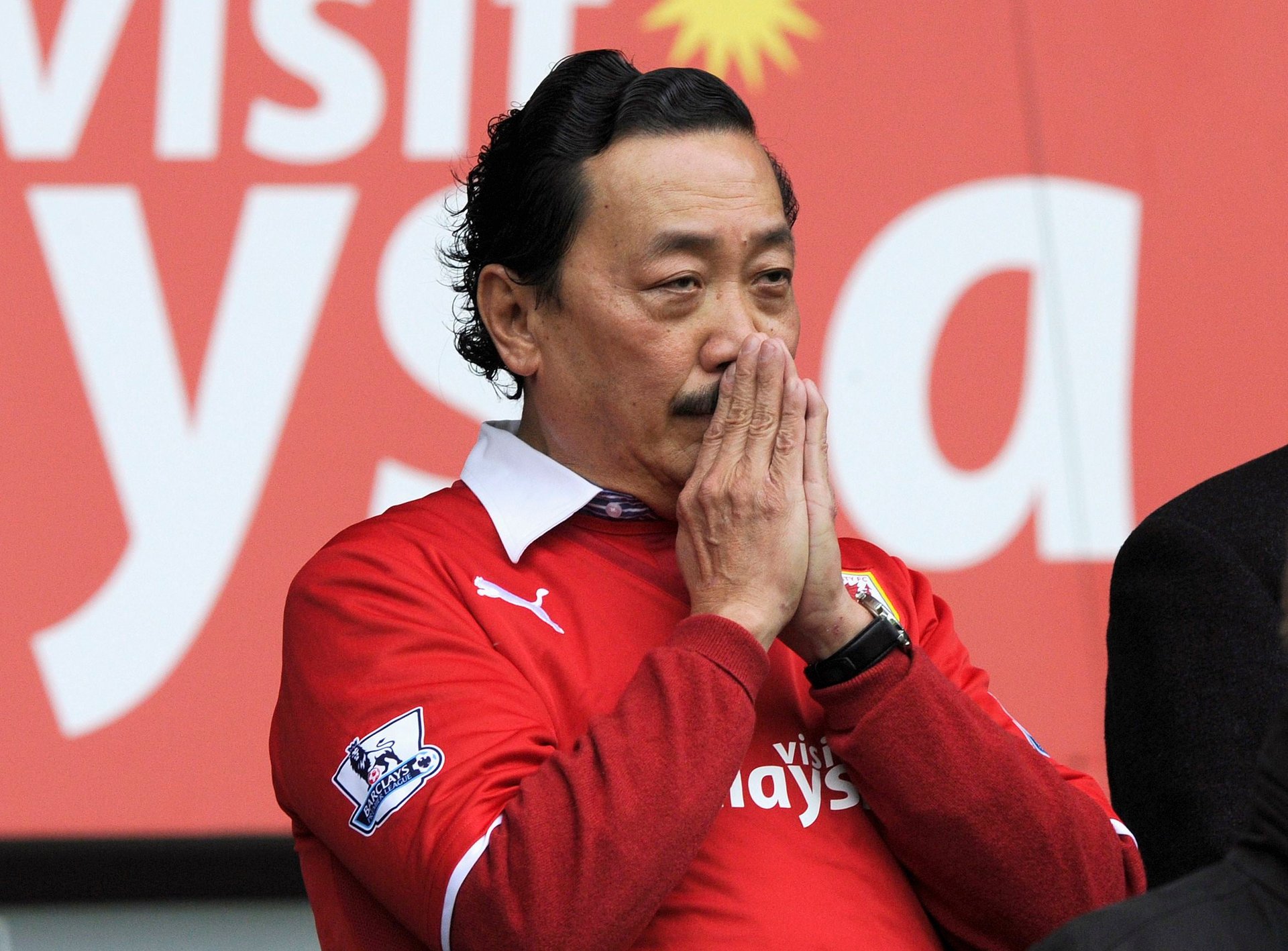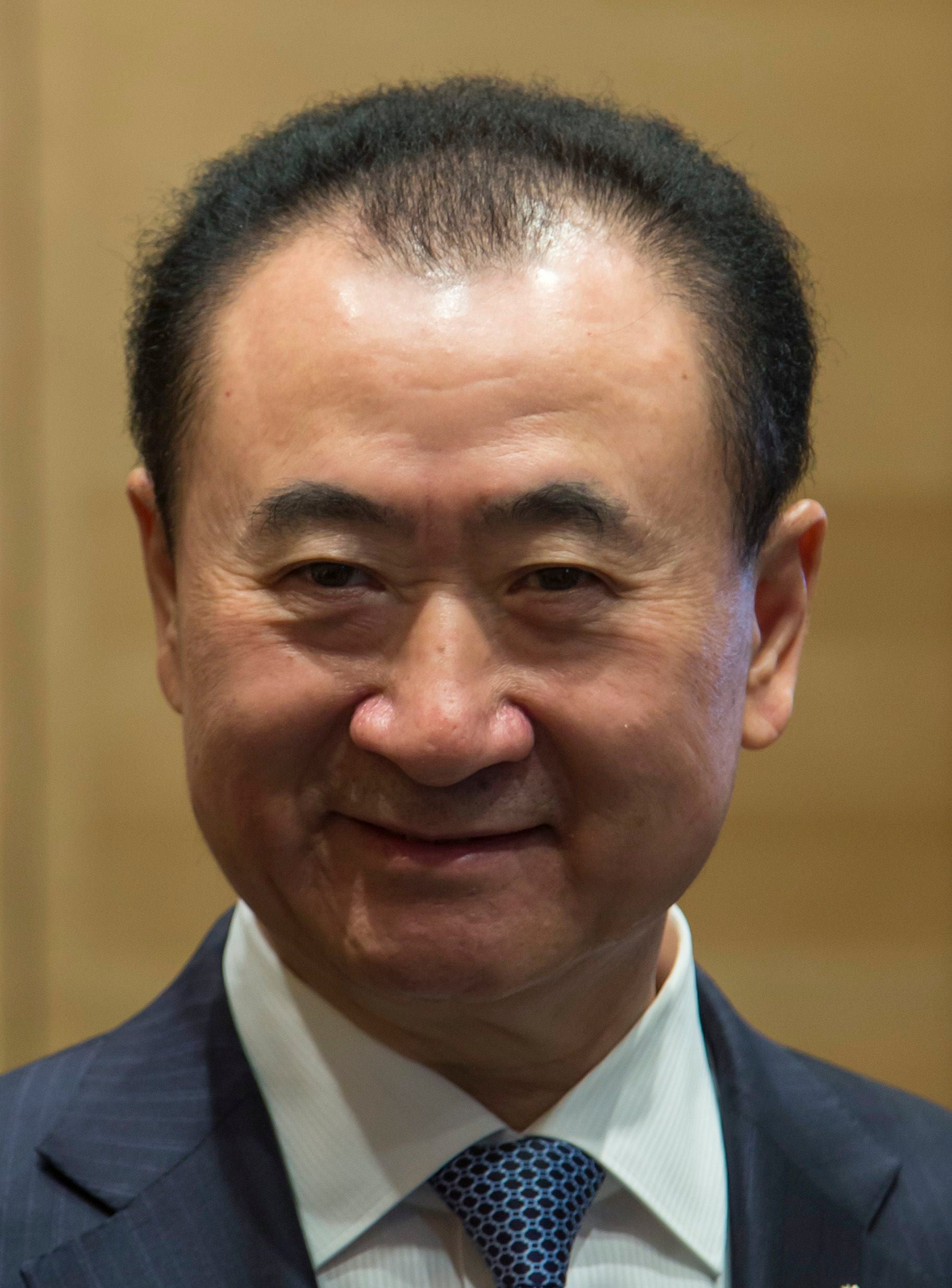Here’s what the Asian billionaires struggling to conquer the beautiful game did wrong
It seems there is a new member of the club of Asian owners of European soccer teams. Wang Jianlin, the richest man in China, is poised to spend €40 million ($46.4 million) to buy 20% of the current Spanish champion, Atletico Madrid.


It seems there is a new member of the club of Asian owners of European soccer teams. Wang Jianlin, the richest man in China, is poised to spend €40 million ($46.4 million) to buy 20% of the current Spanish champion, Atletico Madrid.

Wang will join the board and invest an additional €45 million—which will help Atletico in its quest to repeat its feat from last season, when it won the title for the first time in 18 years and became the first team in a decade to push the duopoly of Real Madrid and Barcelona off the summit of La Liga.
But Asian owners of soccer teams don’t have the best record in the world’s favorite sport. As Wang tries to pull off the success in soccer that he has had in property and retail, Quartz has put together some cautionary tales for him.
Vincent Tan, Cardiff City
The Malaysian businessman is perhaps the most entertaining owner in world soccer. For example, in 2010, Tan bought the Welsh club—nicknamed the Bluebirds—and promptly changed the club color to red, outraging the fans.
After winning promotion to the Premier League, he fired his head of recruitment and replaced him with a 23-year-old Kazakh intern who is friends with Tan’s son. He later fired his manager—for good reason, it turned out—and the club was knocked back down a division last year.
But his relationship with the fans may have begun to turn a corner—Tan recently decided to restore the color of the team’s kit to blue.
Tony Fernandes, Queens Park Rangers
Another Malaysian, Fernandez has more than soccer to worry about at the minute—his AirAsia low-cost airline is still coping with its first-ever crash. He bought the West London club QPR in 2011, and 46 players were since bought or loaned. At one point he was paying the highest amount in agents fees in the league, but none of those players were able to stop the club getting relegated out of the Premier League.
“I’m not cynical or bitter in any way,” he told The Guardian. “Life’s too short, you get ripped off, but if you hold a grudge it’s going to affect you.” QPR is now back in Premier League—but second-last in the table, and back in a relegation scrap.
Erick Thohir, Inter Milan
The Indonesian businessman bought the Italian giant back in 2013 and hasn’t spent much to improve the team, which won the European Cup as recently as 2006. The club has been good at balancing the books—but that hasn’t led to much success on the pitch.
“I get the feeling Thohir doesn’t want to spend money,” one Inter legend has said.
Venky’s, Blackburn Rovers
The owners of the Indian poultry firm Venky’s—Anuradha Desai, Venkatesh Rao and Balaji Rao—bought the club in 2010 and it has been a disaster ever since. They fired the respected manager and replaced him with his inexperienced assistant, who was hated by the fans, and the team was relegated in 2012.
The club has more than £30 million in debts and has had multiple managers—problems that the Venky’s team seems to have taken on board. The owners apologized at the end of last season: ”We are deeply sorry we haven’t, so far, been able to bring the success we all desire for Rovers.”
Carson Yeung, Birmingham City
The Hong Kong businessman took over the club in 2009 and the club was relegated from the Premier League in the same year. Yeung has bigger things to worry about: He was convicted of money laundering last year and jailed for six years.
He resigned in February 2014 as president of Birmingham City, but remains the majority shareholder of the club. Birmingham’s parent company is under investigation, accused of various murky doings by the financial regulators and the English Football League. At issue is who actually owns the club and if they’re fit to own it.
A more inspiring example for Wang
On the other hand, the many Arab owners of soccer teams across Europe seem to be doing much better, using their vast stashes of petro-dollars to build star-studded lineups.
Nowhere is this more clear than Manchester City, which was bought for $330 million in 2008 by a member of the royal family of Abu Dhabi, who went on to spend nearly $1 billion to buy some of the world’s best talent. The club has won the English Premier League twice in three years, as well as multiple other trophies.
And the heir to the Qatari throne purchased Paris Saint-Germain in 2011. The team managed to sign some big players—most notably getting David Beckham to end his career there—and has been French champion for the past two seasons.
The lesson to be gleaned from these Arab owners, for China’s richest man? To succeed in soccer, you’re going to need to spend money. Lots of money.